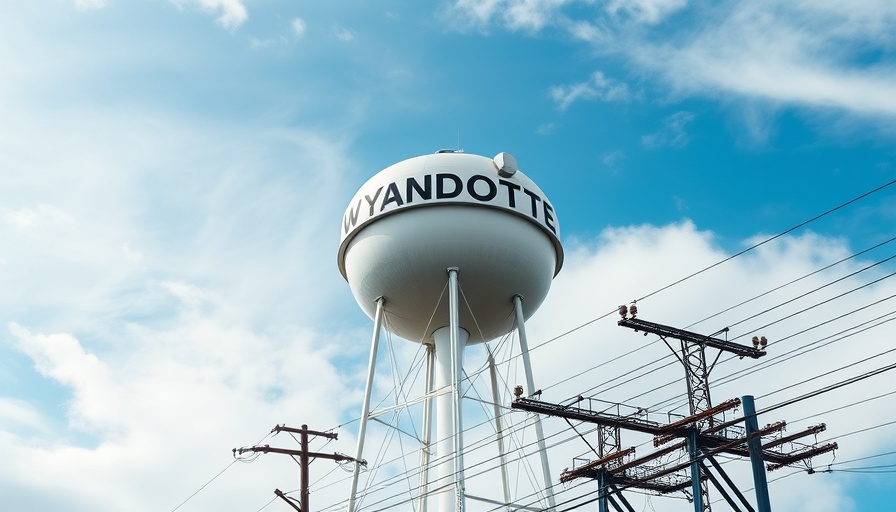
Water Safety in Wyandotte: Urgent Concerns Arise
The recent report from the Michigan Department of Environment, Great Lakes, and Energy (EGLE) has raised red flags regarding the quality of drinking water in Wyandotte. Residents were taken aback by the findings, which cite multiple issues within the water supply system that could compromise safety. From an alarming lack of contaminant protection to the presence of foreign debris, residents and officials alike need to understand the implications of these findings for public health.
In 'Michigan EGLE report blasts Wyandotte water for safety issues', the discussion dives into alarming issues regarding the water supply in Wyandotte, sparking deeper analysis on our end.
What Was Found in the EGLE Report?
The scathing report, dated April 30th, highlights critical violations that point towards a deteriorating water system. Among the most concerning observations were unprotected openings in water reservoirs and inadequate cross-contamination controls that could allow potentially contaminated water to backflow into the system. These issues are compounded by the troubling discovery of tennis balls and insects infiltrating the water supply. According to local residents, many have taken matters into their own hands by investing in household water filters, despite the city's assurances of water quality.
Community Reactions to the Water Safety Issues
Local reaction has been mixed. While officials maintain that "there is no known current risk to public health," skepticism remains among Wyandotte residents. Some people voiced trust in the city's claims, but others were more wary, questioning whether the municipal water is truly safe to drink without additional filtration. This divide reflects a broader uncertainty regarding local governance’s ability to ensure environmental safety.
Counterarguments: The City’s Defense
In response to the EGLE's report, city officials have been quick to assert that they are proactively addressing water quality issues and committed to maintaining public health standards. They have agreed to submit a detailed plan to EGLE to rectify the identified deficiencies. This response signals a recognition of the problems while aiming to reinforce public trust. However, many residents may rightfully ask whether these measures will be enough to ensure safety in the long term.
Looking Ahead: Future Implications for Wyandotte’s Water System
What does this mean for the future? If left unaddressed, these issues could potentially lead to more significant health risks in the community, sparking a need for urgent investments in infrastructure and safety protocols. With nearly 40% of Wyandotte's water system reportedly in significant disrepair, the potential for public health crises may loom if improvements are not made swiftly. This situation serves as a critical reminder of the importance of infrastructure maintenance in ensuring community safety.
Lessons Learned and the Path Forward
The EGLE’s findings offer a pivotal lesson about the necessity of vigilant oversight in public water systems. Communities across Michigan must stay informed and engaged with local government initiatives regarding public safety. Residents' voices are vital in pushing for transparent governance and necessary actions to maintain the integrity of essential services like clean drinking water.
Actionable Insights for Residents of Wyandotte
For those living in Wyandotte, the critical takeaway is to remain informed. Stay updated with local government meetings where these issues are discussed, and consider advocating for comprehensive reviews of the city's water infrastructure. Engaging with community leaders and expressing concerns can lead to more robust action plans that ensure public health is prioritized.
Take Action!
If you are concerned about water safety in your area, consider getting involved. Attend city council meetings, voice your opinions on public forums, and use social media platforms to raise awareness about the need for immediate action on water safety. Together, we can work toward ensuring that Wyandotte’s water supply is safe and reliable for all.
 Add Row
Add Row  Add
Add 



 Add Row
Add Row  Add
Add 